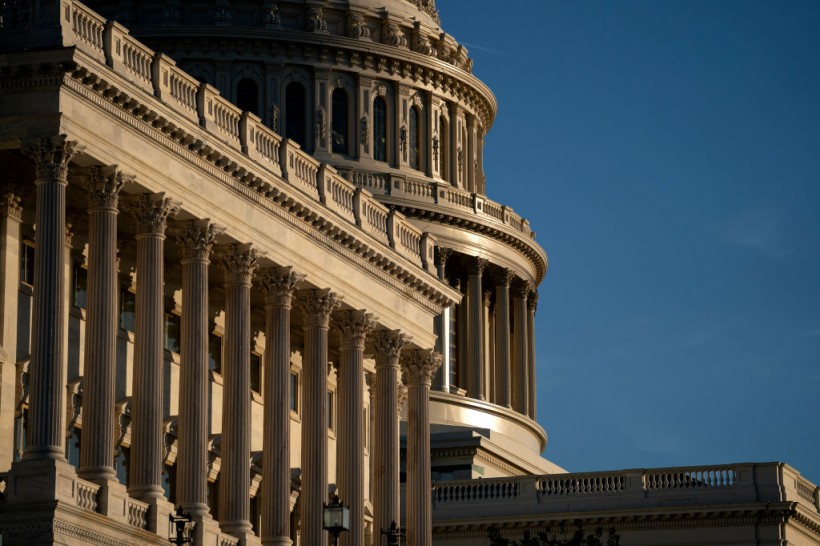Trump Pushes Back Government Shutdown Deadline, Signs One-Week Spending Bill

President Donald Trump has signed a spending bill into a law late Friday, which averts a government shutdown at midnight and allows the federal government to remain open for one more week.
It also gives the White House and Congress more time to resolve numerous budget issues.
The Senate had passed the measure by a unanimous vote earlier in the day, according to a The Washington Post report. The spending bill passed the House early this week.
Lawmakers have managed to delay a government shutdown by passing a bill just hours before its deadline. However, The Post said that there were already signs that reaching an agreement next week could be more difficult.
Sens. Bernie Sanders (I-Vt.) and Josh Hawley (R-Mo.) cautioned their colleagues that they would not allow unanimous consent on another spending bill.T his unless lawmakers voted on a separate measure to pass stimulus checks for Americans as the economy continues to crumble.
Sanders said Congress must address the economic emergency facing the people, adding that senators should not return home for the holidays until they help American families.
"We will deal with the financial crisis facing tens of millions of Americans," Sanders said in a report.
Government Shutdown
Congress has known for months about the looming expiration of government funding. However, lawmakers sought to use the deadline to reach an action on a long-stalled emergency economic relief package.
Related story: Threat of Government Shutdown Arises Due to Failure to Strike a Deal
Lawmakers have yet to reach an agreement on how to fund the federal agencies beyond the stopgap bill. They are expected to use the one-week extension to try to make their way through differences over that.
Among the many things that lawmakers are divided on is the funding over homeland security projects. Government shutdowns have not been rare over the last several years.
Related story: House Set to Vote on Wednesday to Prevent Government Shutdown
The government shut down three times since Trump took office. That includes 35 days in 2018, which is the longest-ever shutdown in modern U.S. history. It caused a standoff between Congress and the White House over funding for a wall along the southern U.S. border.
Thousands of government workers are in danger of being laid off or working without pay unless the shutdown ends if Congress and the White House are not able to agree.
With this, national parks may close, and airport operations may slow down that could eventually take a toll on the economy.
Sen. John Cornyn (R-Texas) said they are not going to have a standalone COVID-19 bill. Cornyn added that it is probably not going to be as expansive as many of them would like.
Other Republican senators suggested they might threaten the one-week continuing resolution until they get a vote on the legislation to end government shutdowns.
Senate Majority Leader Mitch McConnell said he would immediately pass a government spending bill. Lawmakers said they would approve a broader economic relief package.
Meanwhile, House Speaker Nancy Pelosi said talks could continue through Christmas. But she noted that she wanted "to get the job done for the American people" before the holidays.
Delaying talks past Christmas could take lawmakers right up against the deadline for some critical emergency relief programs for millions of unemployed Americans.
Subscribe to Latin Post!
Sign up for our free newsletter for the Latest coverage!












